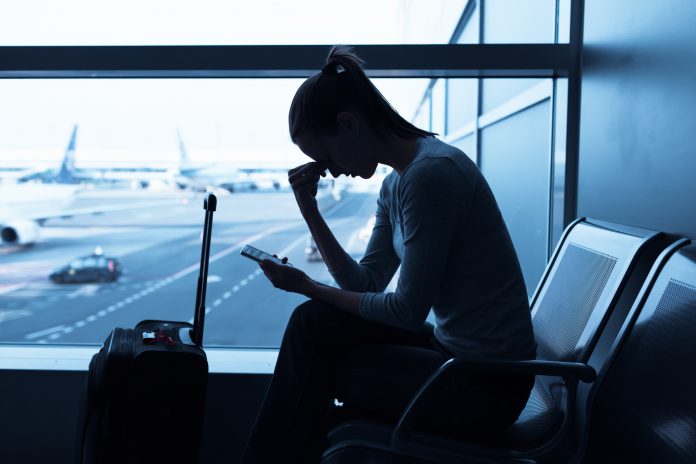
APPROXIMATELY 35 PERCENT of U.S. travelers have concerns about potential airport delays and flight cancellations for the upcoming 2023 holiday travel season, according to a recent survey by exchange services firm IPX103. Despite 23 percent experiencing flight disruptions this year, a substantial 62 percent of Americans are planning to travel this season.
The IPX103 survey found that of the Americans intending to travel, 42 percent are opting for air travel and 54 percent are choosing to drive. Moreover, if gas prices decrease during the holiday season, two in three individuals express a higher likelihood of choosing to drive. Specifically, 44 percent plan to travel for Thanksgiving, while 84 percent have plans for December travel.
Regarding holiday destinations, 38 percent are venturing to a neighboring state, 25 percent are embarking on cross-country journeys, 25 percent are remaining within their own state, and 12 percent are venturing abroad.
In terms of accommodation, a majority of Americans (58 percent) plan to stay with family, while 21 percent will choose hotels or resorts, 10 percent will stay with friends, 9 percent will opt for rental homes, and 2 percent have other lodging arrangements.
Top U.S. airports for delays and cancellations
The survey analyzed U.S. Department of Transportation data to identify the busiest U.S. airports, those with the highest delays, and those with the most cancellations.
The top five busiest U.S. airports are Hartsfield-Jackson Atlanta International, Dallas/Fort Worth International, Denver International, Chicago O’Hare International, and Los Angeles International, respectively.
Meanwhile, the airports with the highest departure delays are led by Fort Lauderdale-Hollywood International, followed by McCarran International (Las Vegas, Nevada), Orlando International, Denver International, Baltimore/Washington International Thurgood Marshall, and Chicago Midway International, the survey revealed. According to the U.S. Department of Transportation, a flight is classified as delayed if it departs 15 minutes or more after the scheduled departure time.
According to the survey, the top five U.S. airports with the highest number of canceled flights are Dallas Love Field, Fort Lauderdale-Hollywood International, Newark Liberty International (Newark, New Jersey), LaGuardia (New York), and Dallas/Fort Worth International.
Willing to pay for convenience
The survey indicated that the average American has set aside $892 for flights in 2023. Moreover, travelers are budgeting an average of $2,005 for this holiday season. Nearly half, 45 percent, intend to use points or rewards to save on travel, resulting in an average savings of $515 per person in 2023. However, 84 percent of Americans do not intend to buy travel insurance.
Approximately 56 percent of surveyed travelers check a bag when flying, and 42 percent of them worry about potential loss. Around 18 percent take precautions by using tracking devices. The survey also highlighted that lost luggage isn’t the only concern; 31 percent are anxious about COVID-19, and 38 percent plan to wear a mask while traveling.
The survey also found that three out of four travelers are willing to pay extra for convenience and peace of mind, often choosing direct flights. Moreover, 62 percent are open to spending more to secure seats alongside family members during air travel.
In October, a report from the U.S. Travel Association and Ipsos projected that air travel challenges could incur a $71 billion cost to the U.S. economy in the next year. To tackle this issue, experts recommend prioritizing a comprehensive Federal Aviation Administration reauthorization bill, reinforcing both the strategy and funding of the FAA, and adopting innovative air travel practices based on the experiences of other nations.





